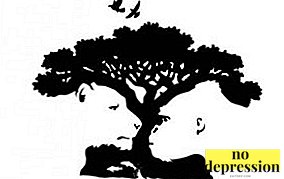Small children up to a certain age still not able to control their physiological needs.
Consciously go to the pot, they begin about 2 years.
However, in some fecal incontinence (encopresis) continues to older age or occurs unexpectedly after some traumatic situation.
About the disease

Enkoprezom called the inability of the child or adult control defecation.
That is, the patient can not reach the toilet, does not notice how feces begin to stand out.
According to the ICD, the disease is designated F 98.1. Most often the pathology occurs in boys, can occur at any age. Often disease combined with enuresis - incontinence.
In medical practice, share the true and false encopresis. True - This is a consequence of the underdevelopment of the cerebral cortex, when the patient is not able to catch the urge to empty the bowel.
This phenomenon is quite rare. More common false encopresis It usually occurs due to overcrowding due to constipation. In this situation, the bowel reflex is suppressed.
Also, the disease is primary and secondary. Primary - This is the initial inability of the child to control voluntary bowel movement. Secondary occurs suddenly when a child has long learned to go to the pot.
From the point of view of etiology, encopresis is:
- Constitutional. It occurs due to various somatic pathologies. They can be the cause of the disease or a provoking factor.
- Neurotic. It develops on the background of a serious stressful situation.
- Pathocharacterological. At first, the child does this specifically as a protest, then control over the excretion of feces is lost and involuntary defecation becomes a reflex.

Isolated cases of involuntary bowel movement may occur. in children after 4 years, if they are too played and forgot to go to the toilet.
This phenomenon is considered normal and does not require correction.
If such cases occur regularly, then parents should consult a doctor.
The reasons
Causes of encopresis in children and adults have an organic or psychological nature.
TO organic reasons relate:
- Pathology of the regulation center in the brainresponsible for the function of the rectum sphincter.
This may be due to a head injury, neuroinfection, fetal hypoxia, etc.
- Bowel disease: hemorrhoids, anal fissure, tumors, mechanical damage.
- Constipation. The intestines of the child overflows with feces, the bowel is stretched. As a result, the signals to the brain are worse.
- Immaturity of the digestive tract. This applies not only to the intestines, but also to the liver, pancreas, stomach.
- Epilepsy. During an attack, a person cannot control the urge.
- Mental illnessin particular, dementia.
Among psychological reasons allocate:
- Wrong potty training. It may be too late or too early. High demands and subsequent punishment cause a backlash.
- Fear of going to the toilet because of the pain. For example, with constipation or anal fissures, the child feels pain while straining, so he avoids voluntary bowel movement and suffers to the last.
- Constant requests of parents to be patientwhen the baby wants to use the toilet. The child learns to be distracted from the urge, therefore, ceases to feel them.
- Lack of education. Encopresis is often found in children from dysfunctional families, when parents do not accustom them to the pot. The child just gets used to walking in dirty pants and does not pay attention to the unpleasant smell.

Psychosomatics
In most cases, the disease has a psychosomatic nature. The main reason - this is fear. Fear of punishment, fear of being left without parents, etc.
Often, fecal incontinence begins in children after they go into the kindergarten or are taken to hospital. Abrupt change of environment is a stressful factor.
Encopresis called "Bear disease", as it appears out of fear and repeats itself in a state of great excitement.
Also psychosomatic reasons diseases are:
- Lack of maternal love.
- Constant conflicts in the family.
- Regular cruel punishment of a child.
- Hostile atmosphere in kindergarten, school.
- The inability of the child to improve relationships with peers.
- Strong load at school, with which the kid is afraid not to cope.
- Unexpected sharp scare.

Symptoms
Each age category has its own intestinal emptying rates. So children up to a year go to the toilet up to three times a day.
After a year, normal daily bowel movement is considered no more than 1 time per day. If this happens more often or less frequently, then this is evidence of a malfunction in the body.
The symptoms of true and false encopresis are somewhat different. With true pathology the child has a regular stool, but the excretion of feces is involuntary. Linens are constantly traces of feces.
Due to the impossibility of the sphincter to close, it remains slightly open, the feces accumulate near the back. As a result, the skin near the anus is irritated, inflamed, cracks may appear.
It is even more aggravates the situation. Psychologically, the child feels depressed, shy, shorts from others. Except for cases when a child from a dysfunctional family is distinguished by deviant behavior.
False encopresisdeveloped on the background of constipation, manifested by the following symptoms:
- Lack of bowel movements for several days.
- The accumulation of a large amount of feces around the anus.
- Abdominal pain, hard abdomen.
- Constipation alternates with a liquid stool with an unpleasant odor, since the retention of feces causes fermentation in the intestine. Therefore, the child on the clothes constantly appear traces of feces.
- Your baby may have a worse appetite, aggression or depression.

Parents should not scold children for dirty pants, this will further strengthen the psychological depression and can lead to depression.
Komarovsky about pathology
According to the well-known pediatric doctor Komarovsky, encopresis is more common than it seems. Often parents ignore pathologywithout taking seriously the clinical manifestations.
The main cause of pathology is constipation. If it is impossible to empty the intestines, it stretches and sends less impulses to the brain. It turns out a vicious circle.
Direct over time the gut can stretch so that all the contents will just fall out. If you do not start treatment in time, it will turn into a serious physiological and psychological problem: the child will be shy, will be the subject of constant ridicule.
Parents should remember that the baby does not do it specifically for laziness or carelessness. They really can't stop the process. All that parents must do is help.

Constipation treated medication and diet.
Psychotherapeutic techniques are used for the therapy of psychosomatic encoporesis.
In no case can not scold the kid, shame, make fun, intimidate.
The treatment will take a single day, this should be ready. It is important to support the child, to celebrate his smallest progress.
Diagnostics
Which doctor should I go to? For the diagnosis should refer to a pediatrician and a neurologist. The main diagnostic criteria are:
- Regular constipation in combination with diarrhea.
- Fecal incontinence at least twice a month, lasting for six months.
- Often children have astheno-neurotic syndrome.
For diagnosis, it is important how the childbirth proceeded, whether head injuries occurred, what events occurred before the first symptoms appeared.
Also, the child is prescribed instrumental studies:
- Ultrasound of the abdominal organs. Allows to detect or exclude pathologies of internal organs;
- tests for the thyroid gland;
- bacteriological examination of feces;
- biochemistry of blood, urine;
- fibrogastro and colonoscopy. This is a study of the stomach and rectum with an endoscope. Examines the condition of the mucosa, during the procedure, take the biomaterial for further laboratory research;
- x-ray intestine with contrast.
Based on these studies succeeds establish the cause constipation and encopresis.
Treatment
How to cure encopresis? Encopresis therapy should be complexcombining psychotherapeutic and medical methods. The choice of treatment depends on the cause of the disease.
Drug therapy
Depending on what caused the disease, the doctor selects medications. Apply the following types of drugs:
- Probiotics to normalize the digestive process. This is Atsipol, Bifiform, Linex.
- Neurometabolic agents (nootropics). Have an impact on higher mental functions. These are medicines such as: Piracetam, Pyridoxine, Fenotropil.
- Laxatives: Microlax, Guttalaks. Apply as a last resort, when an emergency bowel movement is required, and other means do not help. It is undesirable to give the baby laxatives based on senna.

Physiotherapy
Physiotherapeutic methods are effective for encopresis that develops due to constipation. Assign the following activities:
- Cleansing enema. It has a training effect on the intestines. It should be 500 ml of liquid, it is better to decorate chamomile, enter into the intestine. Then the child must hold water for some time inside with a sphincter.
- Sphincter electrostimulation a tube.
- Physical exercise. Motor activity stimulates intestinal peristalsis.
Diet and daily regimen
To normalize the stool is necessary adjust patient nutrition. In the diet of the child should be a lot of fiber, vegetables, fruits, dairy drinks. Coarse dietary fiber found in cereals, bran, prunes, whole grain bread.
Fermentation in the intestines and constipation provoke: baking, sausages, fast food, sweets. Therefore, such products are prohibited.
Should teach the child visit the toilet regularlyto timely empty the intestines. It is advisable to do this after a meal, after a walk. You can not rush the baby, perhaps he will need 10-15 minutes, gradually he will learn to do it faster.

To overcome fear of the toilet room it must be equipped accordingly.
It should smell nice, you can bring toys, books there, come up with interesting tasks.
For every little success, it is necessary to praise the child, to encourage.
ethnoscience
Traditional medicine is used at home in combination with traditional methods after consulting a doctor.
Prescribe laxatives herbal teas soothing teas:
- motherwort or valerian brew;
- lavender essential oil. You can add to the bath before bedtime;
- buckthorn decoction has a laxative effect;
- a mixture of carrot and beet juice, decoction of prunes also prevent constipation.
Psychology tips
In case of neurotic or pathocharacterological encopresis, it is important to understand what is causing the baby’s discomfort. First you need to create a patient favorable psychological environment. You can not blame the kid for dirty pants, punish.
If the family tensions, then you need to protect the child from the conflicts of parents. He must feel that he is loved, cherished, accepted as he is.
Of great importance is a full sleep, physical activity, proper nutrition. Organize it all - parental task.
Prevention
Encopresis Prevention The following actions are:
- warning constipation;
- avoidance of stress, traumatic situations;
- proper and timely potty training;
- contacting a doctor at the first signs of the disease.

The prognosis depends on the root cause. If medical recommendations are followed, pathology is perfectly treatable, unless it is a consequence of organic brain damage.
A less favorable prognosis is observed with a late visit to the doctor, ignoring the doctor's prescriptions.
Fecal incontinence represents serious problem for the patient. It can become an obstacle to learning, establishing interpersonal relationships.
Children become withdrawn, withdraw into themselves, and may become depressed. therefore important on time diagnose the problem and start treatment.
About encoprese in this video:



